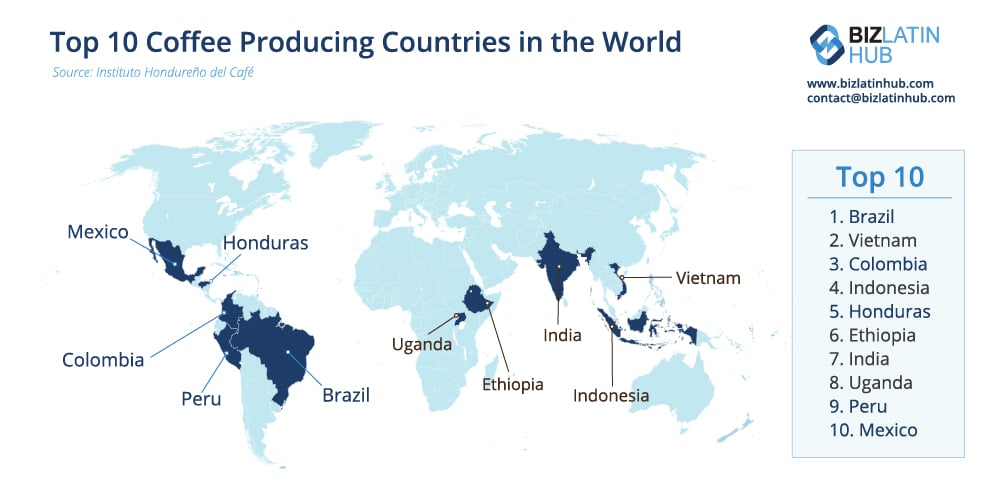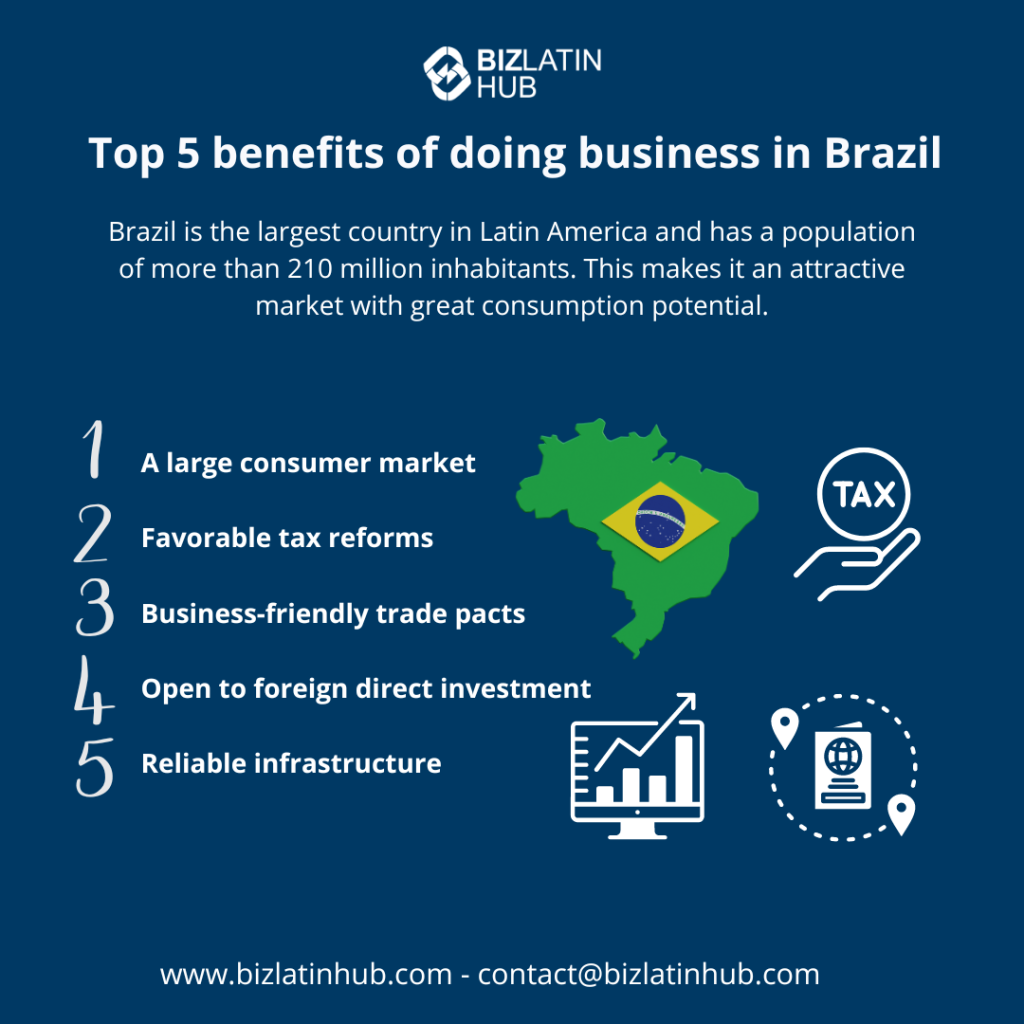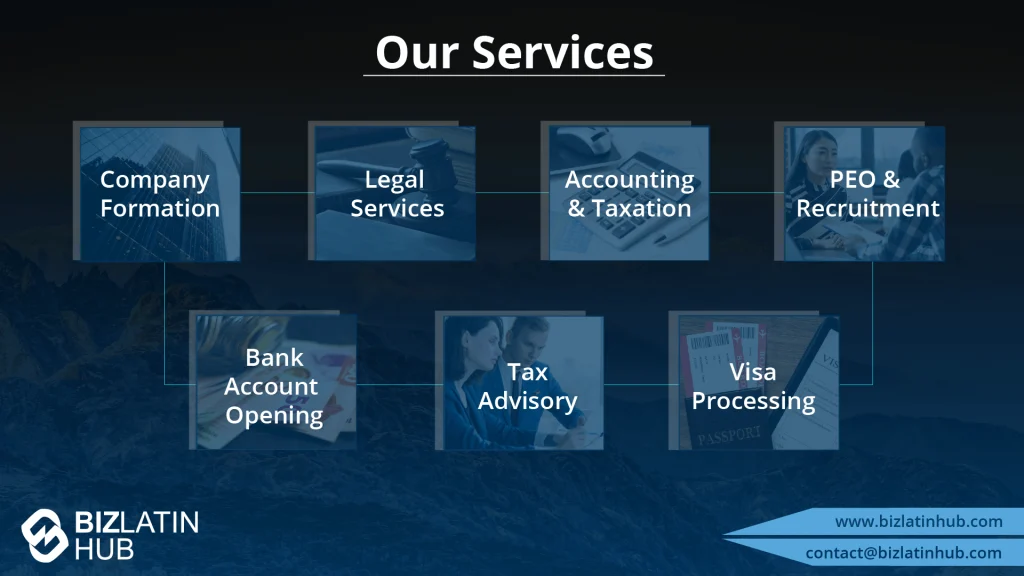As you may well know, doing business in Brazil entails navigating the complexities of the largest economy in Latin America (and 9th largest in the world), which boasts abundant natural resources, including oil and gas. However, Brazil is also a country of contrasts; while the government claims to welcome foreign investment, doing business in Brazil can be challenging.
The country has undertaken efforts to liberalize the economy and streamline the excessive, multi-level bureaucratic processes, a common trait found across Latin America. As a result, doing business in Brazil is slowly but steadily opening up to internationalism, making it an increasingly attractive destination for investment.
Although doing business in Brazil has always been attractive, but has never been easier. This makes it an excellent time to move into the market. Early adopters have already benefitted and it makes sense to connect with a partner such as Biz Latin Hub which understands local conditions perfectly.

What are the main economic drivers in Brazil?
In recent years, Brazil has suffered from stagflation and other economic woes. It’s not all doom and gloom, however. Below are the top five industries that have remained resilient and are experiencing a resurgence in growth.
Those interested in investing and doing business in Brazil should keep a close eye on the following sectors:
- Oil exploration/extraction.
- Agricultural production.
- Automotive manufacturing.
- Garment/textile production.
- Renewable energy.
There are plenty of reasons to be optimistic about Brazil’s economy. The vast majority of high-growth industries are labor-intensive, but this can work in an employer’s favor. Foreign entities doing business in Brazil would do well to learn about how they can hire workers through an Employer of Record in Brazil.
Doing business in Brazil: Top 5 sectors ripe for investment
The best sectors ripe for investment when doing business in Brazil are:
- Oil and Gas.
- Agribusiness.
- Automotive manufacturing.
- Textiles/clothing production.
- Renewable energy.
1. Oil and gas
Brazil is a major player in the oil & gas sector and has the second-largest proven oil reserves in the Americas. The state oil company Petrobras recently began deep sea drilling operations at an offshore deposit that’s estimated to contain roughly 1 billion barrels of oil.
Brazil has a significant and diverse energy sector, and the gas industry plays a crucial role in meeting the country’s energy demands. The gas sector includes natural gas exploration, production, transportation, distribution, and consumption. Brazil has significant natural gas reserves, both onshore and offshore. Exploration and production activities are concentrated in various regions where substantial reserves have been discovered.
2. Agribusiness
Another pillar of the Brazilian economy is the agricultural sector. The country produces rubber, cocoa, cattle, tobacco, sugarcane, and a wide variety of fruits and vegetables. Unlike other countries in the region, Brazil invested heavily in the modernization and mechanization of the sector. Those investments paid off: Brazil is now the world’s largest producer of soybeans.

3. Automotive manufacturing
The automotive manufacturing sector is another engine of Brazil’s economy. Companies such as Toyota, Ford, Mercedes Benz, Chrysler and Hyundai (among others) have manufacturing facilities in the South American country. Collectively, automakers in Brazil turn out more than 2 million automobiles a year. Brazil is one of the largest automotive markets in the world. The country has a substantial domestic demand for vehicles, driven by factors such as population growth, rising income levels, and urbanization.
4. Textiles/clothing production
The country’s textile sector is valued at $63 billion, and it consists of 30,000 companies with a yearly production of 9.5 million garments. The sector is also Brazil’s second largest in terms of employment. As Brazil is also a significant producer of cotton, the textile industry sources its fabric locally.
5. Renewable energy
Brazil is the third-largest producer of electricity in the Western Hemisphere. It provides near-universal electricity coverage in the country and even exports some of that power to its neighbors. Renewable energy makes up 45 percent of Brazil’s energy demand, principally through hydroelectric dams, biofuels and waste, wind, and solar power.
Brazil has long been a global leader in the use of hydropower for electricity generation. The country has a vast network of rivers and abundant water resources, making hydropower a significant contributor to the energy mix. Large hydropower plants, such as the massive Itaipu Dam, have played a crucial role in meeting the country’s electricity demand.
Top 5 benefits of doing business in Brazil
Whether your company is considering entering the Brazilian market, or you are an entrepreneur considering a company formation in the jurisdiction, there are a number of up-sides to doing business in Brazil.

- A large consumer market – With a population of 217 million, entering the jurisdiction automatically gives you access to the second largest domestic consumer market in the Americas after the United States. With its young consumer base (62 percent of Brazilians are aged 29 and below) and a growing middle class, Brazilians have more disposable income than ever before, and they’re looking to spend on the latest consumer goods and services.
- Favorable tax reforms – A value-added tax (VAT) reform bill is making its way through Brazil’s legislature. The bill will unite nine separate national taxes into one VAT rate. It would also align the tax plan with a state-level tax on goods and services, setting a 17 per cent cap on taxes, and eliminate sales tax on a host of staple goods.
Favorable tax reforms – A value-added tax (VAT) reform bill is making its way through Brazil’s legislature. The bill will unite nine separate national taxes into one VAT rate. It would also align the tax plan with a state-level tax on goods and services, setting a 17 percent cap on taxes, and eliminate sales tax on a host of staple goods. - Business-friendly trade pacts – Brazil is a member of the MERCOSUR trade bloc, along with Argentina, Paraguay and Uruguay. The country is also part of the BRICS trade alliance comprised of Brazil, Russia, India, China, and South Africa. Foreign companies that are domiciled in Brazil will enjoy tariff-free and duty-free imports and exports to those markets.
- Open to foreign direct investment – Brazil’s foreign direct investment (FDI) dropped by 62 percent in 2020 during the height of the pandemic, but since then investments flowing into the South American country have rebounded dramatically. FDI totaled 91.5 billion USD in 2022.
- Reliable infrastructure – To the uninitiated, functioning infrastructure might seem like a given. But in a region of the world where most highways and city streets have more craters than the surface of the moon, well-maintained infrastructure comes at a premium. Brazil is lucky to have a vast network of roadways, domestic and international airports, and dozens of modern seaports.
Biz Latin Hub can help you with doing business in Brazil
At Biz Latin Hub, we provide integrated market entry and back-office services throughout Latin America and the Caribbean, with offices in Bogota and Cartagena, as well as over a dozen other major cities in the region. We also have trusted partners in many other markets.
Our unrivaled reach means we are ideally placed to support multi-jurisdiction market entries and cross-border operations.
As well as knowledge on how to go about doing business in Brazil, our portfolio of services includes hiring & PEO accounting & taxation, company formation, bank account opening, and corporate legal services.
Contact us today to find out more about how we can assist you in finding top talent, or otherwise do business in Latin America and the Caribbean.
If this article about doing business in Brazil was of interest to you, check out the rest of our coverage of the region. Or read about our team and expert authors.






